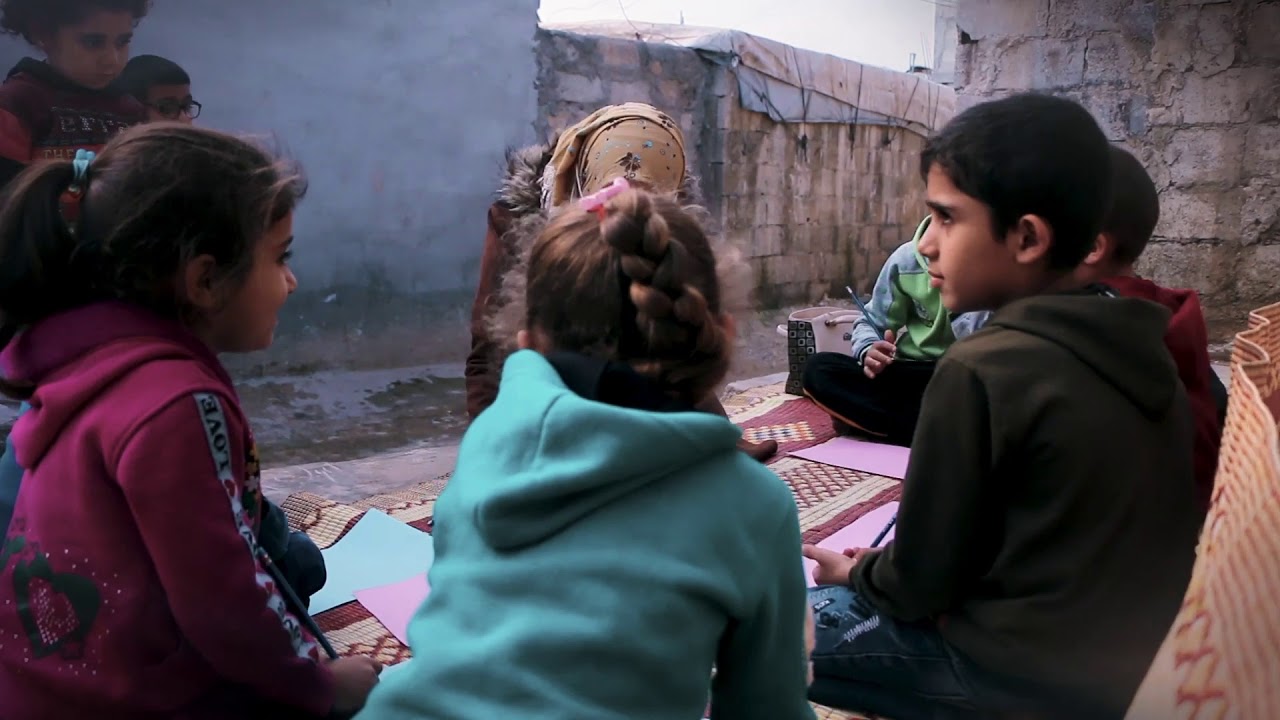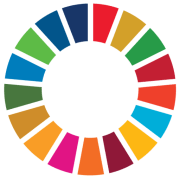
Deliver Humanitarian Aid
A young girl standing by her tent in the Warga Dalal camp in Zakho, northern Iraq in October 2014, where an estimated 2.8 million people were in need of food and approximately 800.000 people in urgent need of emergency shelter. The United Nations Refugee Agency (UNHCR) delivered supplies to that camp such as tent insulation and flooring which would keep refugees warm in the harsh winter months. OCHA/Iason Athanasiadis

One of the purposes of the United Nations, as stated in its Charter, is "to achieve international co-operation in solving international problems of an economic, social, cultural, or humanitarian character." The UN first did this in the aftermath of the Second World War on the devastated continent of Europe, which it helped to rebuild.

The Organization is now relied upon by the international community to coordinate humanitarian relief of emergencies due to natural and man-made disasters in areas beyond the relief capacity of national authorities alone.

OCHA and the UN System
"Each day I wake up in the hope of bringing about change. A change in the life of someone in need." The psychosocial camp counsellor for Atma IDP camp, herself displaced since 2012, visits displaced families every day to talk about their stresses and offer support to children who have lost their parents. ©OCHA
The Office for the Coordination of Humanitarian Affairs (OCHA) of the UN Secretariat is responsible for coordinating responses to emergencies. It does this through the Inter-Agency Standing Committee, whose members include the UN system entities most responsible for providing emergency relief. A coordinated, system-wide approach to humanitarian relief is essential in providing assistance quickly and efficiently to those in need.
OCHA’s mandate stems from General Assembly resolution 46/182 of December 1991, which states: "The leadership role of the Secretary-General is critical and must be strengthened to ensure better preparation for, as well as rapid and coherent response to, natural disasters and other emergencies. This should be achieved through coordinated support for prevention and preparedness measures and the optimal utilization of, inter alia, an inter-agency standing committee, consolidated appeals, a central emergency revolving fund and a register of stand-by capacities."

OCHA and CERF
2020: A year of unprecedented need around the world. CERF met the challenge - allocating a record $900 million, it delivered life-saving assistance in 52 countries with unparalleled speed. CERF provided a record $225 million to 20 underfunded and neglected crises. First ever global pandemic allocation. First ever allocation to NGOs, CERF helped humanitarian partners reach those in greatest need. ©CERF
The UN Central Emergency Response Fund (CERF), managed by OCHA, is one of the fastest and most effective ways to support rapid humanitarian response for people affected by natural disasters and armed conflict. CERF receives voluntary contributions year-round to provide immediate funding for life-saving humanitarian action anywhere in the world.

UN entities with a primary responsibility for delivering humanitarian aid
The United Nations Development Programme (UNDP), the United Nations Refugee Agency (UNHCR), the United Nations Children's Fund (UNICEF) and the World Food Programme (WFP) have primary roles in the delivery of relief assistance.
The World Health Organization (WHO) coordinates the response to humanitarian health emergencies.

Coordinating at the national level
The United Nations Development Programme (UNDP) is responsible for operational activities for natural disaster mitigation, prevention and preparedness.
When emergencies occur, UNDP Resident Coordinators coordinate relief and rehabilitation efforts at the national level.

Helping refugees
The UN Refugee Agency (UNHCR) emerged in the wake of World War II to help Europeans displaced by that conflict. The agency leads and coordinates international action to protect refugees and resolve refugee problems worldwide.
The General Assembly created the United Nations Relief and Works Agency for Palestine Refugees in the Near East (UNRWA) to provide emergency relief to some 750,000 Palestine refugees, who had lost their homes and livelihoods as a result of the 1948 Arab-Israeli conflict. Today, some 5 million Palestine refugees are eligible for UNRWA services.
The UN General Assembly hosted a high-level meeting on 19 September 2016 to address large movements of refugees and migrants, with the aim of bringing countries together behind a more humane and coordinated approach.

Helping children
Since its beginning, The United Nations Children's Fund (UNICEF) has strived to reach as many children as possible with effective, low-cost solutions to counter the biggest threats to their survival. UNICEF also consistently urges governments and warring parties to act more effectively to protect children.
The Core Commitments for Children in Humanitarian Action – the CCCs – are the core UNICEF policy and framework for humanitarian action. They are at the heart of UNICEF's work on upholding the rights of children affected by humanitarian crises. The CCCs promote equality, transparency, responsibility and a results-oriented approach to enable predictable and timely collective humanitarian action.

Feeding the hungry
The World Food Programme (WFP) provides relief to millions of people, who are victims of disasters. It is responsible for mobilizing food and funds for transport for all large-scale refugee-feeding operations managed by UNHCR.
The Food and Agriculture Organization of the United Nations (FAO) is often called on to help farmers re-establish production following floods, outbreaks of livestock disease and similar emergencies.
The FAO Global Information and Early Warning System issues monthly reports on the world food situation. Special alerts identify, for Governments and relief organizations, countries threatened by food shortages.

Healing the sick
The World Health Organization (WHO) coordinates the international response to humanitarian health emergencies of all kinds ranging from disease outbreaks to conflicts to natural disasters. WHO is responsible for providing leadership on global health matters, shaping the health research agenda, setting norms and standards, articulating evidence-based policy options, providing technical support to countries and monitoring and assessing health trends.
In the 21st century, health is a shared responsibility, involving equitable access to essential care and collective defence against transnational threats.







